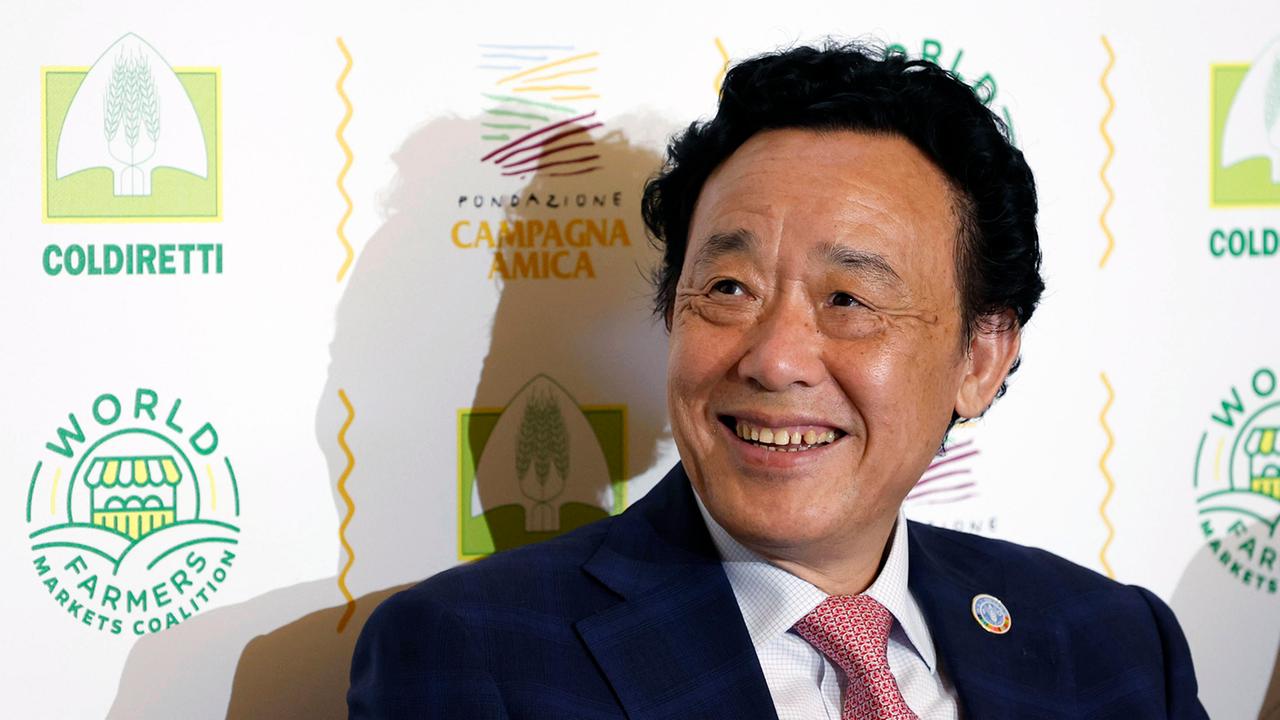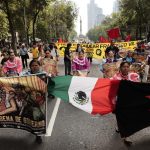exclusive
The election of the Director General of the Food and Agriculture Organization (FAO) is scheduled for the weekend. Sole candidate: incumbent Qu Dongyu. One ARD-Research shows how he rebuilt the organization and aligned it with China’s interests.
The Chinese leadership of the UN Food and Agriculture Organization (FAO) has tailored it to Chinese interests over the past four years. This is shown by a joint research by BR, MDR, rbb and SWR. Accordingly, the acting director-general has instrumentalized the Food and Agriculture Organization (FAO) based in Rome in the interests of Beijing: It is about deliveries of pesticides that are banned in Europe, most of which come from a Chinese agrochemical company, UN projects in line with China’s “New Silk Road” and questionable investment projects.
An FAO insider contacted the Food and Agriculture Organization earlier this year ARD The organization has changed massively since Chinese Director General Qu Dongyu took office in August 2019.
It is the beginning of a month-long research that leads to four continents. The reporters show the extent of the influence – with the help of a leaked data set, internal documents and based on interviews with current and former employees of the FAO as well as national and international experts.
The Food and Agriculture Organization (FAO) is a specialized agency of the United Nations. Its goal is to end world hunger by 2030 and achieve food security for all people. Germany is one of 194 member countries. According to the latest UN statistics, Germany paid more than 100 million euros to the FAO in 2021. This makes Germany the second largest donor after the USA.
Millions of debts waived – opposing candidate withdrew
A majority of FAO member states elected Qu as Director-General in the first ballot in June 2019. He prevailed against a candidate from the European Union and a candidate from Georgia supported by the USA. Previously, Qu was Vice Minister of Agriculture of China. He is credited with credit for China’s global New Silk Road infrastructure project: a multitude of major investments in roads, rails, railway stations and ports in dozens of countries – with the aim of opening up strategic trade routes for China.
In the run-up to the election, China had waived nearly $80 million in debt to the African state of Cameroon. After that, an opposing candidate from Cameroon withdrew his candidacy. The CDU politician Julia Klöckner, Minister of Agriculture from 2018 to 2021, took part in the 2019 election for Germany.
She remembers the election day as follows: “Before the ballots took place, it transpired that African states in particular should please take a photo of their ballot paper in the polling booth.” Among FAO observers, this is interpreted as an indication that China may have made offers to vote for several states.
The FAO Committee on Constitutional and Legal Affairs dealt with the election and suggested examining best practices and rules from other UN organizations. In this context, the discussion about mobile phones in voting booths is also documented.
reports to the embassy
Immediately after taking office, the Chinese director-general began to work more closely to link the UN agency and China’s leadership. This included the development of a new FAO website. Instead of going to an IT company, the contract went to the Chinese Ministry of Agriculture, and according to a list of large payments, more than $400,000 went to Beijing.
Under Qu, the UN organization awarded many important posts to the Chinese. This becomes clear with the particularly influential directors, who are appointed directly by the general director. When Qu took office, there were two Chinese directors at the FAO; now there are six. These have many employees under them and have budgets. One of the Chinese directors represents FAO at the United Nations.
Internal documents from the FAO, the BR, SWR, rbb, MDR and the ARD studio Rome available, give an insight into a special group of employees: so-called “officers” who work in the organization’s headquarters in Rome, but whose salaries are paid from Beijing. Other states also pay officers from their home countries.
However, Chinese tender documents show that the Chinese officers are “strictly” screened for “political ideology.” They also have to report regularly on their work to the Chinese embassy in Rome. The FAO insider says the Chinese officers are called “spies” internally.
Agreement with Chinese pesticide company
One of the Chinese directors is responsible for crop protection – and thus for dealing with pesticides. For years, under Chinese leadership, the FAO has cleared shipments of controversial pesticides to Africa, Asia and Oceania, internal filings dated to 2020-2023 show. Accordingly, the FAO headquarters in Rome approved pesticides for use in projects in various countries. Many of these pesticides contain active ingredients that are banned in the EU because of their toxicity.
Pesticides from the agrochemical group Syngenta had the largest share of delivery approvals that could be assigned to specific products. Syngenta has been owned by a Chinese state-owned company since 2017. Under Qu, the FAO entered into a partnership with the company – with no other pesticide manufacturer such a cooperation exists. In addition, the FAO has agreed a partnership with the agrochemical interest group CropLife, of which Syngenta is a member.
Former FAO employee Hans Dreyer is “shocked” by the large number of releases of such toxic pesticides. Dreyer is the former head of the responsible FAO department for plant protection and predecessor of the Chinese director. He says: “I can only speak about my time. It was the case that you absolutely tried not to use such substances. And if I see it that way, it corresponds to an increase in risk if you start using these substances now.” There was nothing like that in his time.
On request, the FAO writes in general that no pesticides are supplied that meet the criteria for highly hazardous pesticides, and only those that are approved in the recipient country. The FAO leaves unanswered questions about specific pesticide releases, especially active ingredients that are banned in the EU because of their toxicity.
Projects for the “Silk Road”
The research shows that several FAO projects serve the Chinese global infrastructure project “One Belt, One Road” (engl. “New Silk Road”). For example, China has cattle vaccinated in neighboring Laos via the UN organization, according to an FAO press release with the aim of exporting them to China. An internal FAO project description states that the project is “consistent with […] “China’s priority” is “to support the ‘One Belt-One Road (Silk Road)’ Regional Trade Initiative.”
A “flagship” program launched by the FAO under the Chinese Director-General also suggests that Chinese interests should be pursued. The “Hand-in-Hand Initiative” wants to bring countries and investors together. The initiative promotes investments in the expansion of ports and tourism in the African island state of São Tomé and Príncipe, such as a dock for cruise ships.
The country lacks electricity, petrol and infrastructure. Nevertheless, the archipelago in the Atlantic is of strategic importance for China, as shown by the expansion of the airport or the announcement of the construction of a deep-sea port. Political analyst Gustavo Plácido dos Santos says the island’s location is the main reason for China’s interest in Sao Tome and Principe, as there is still no direct connection of the Silk Road to the Atlantic.
Director General Qu traveled to Panama in April 2022 to promote an infrastructure project of the Hand-in-Hand Initiative. There he met President Laurentino Cortizo. The two talked about a possible food hub for the Panama Canal – a transhipment point for food.
Evan Ellis, a Latin American researcher at the US Army War College, explains that the Panama Canal has not yet been used for this. But the FAO-backed investment project could give Chinese companies an advantage “that they cannot gain directly in the market through competition or acquisition.” Because worldwide market power in agricultural logistics lies with Western companies.
Questionnaire not answered in terms of content
The FAO leaves a comprehensive catalog of questions unanswered. A scheduled meeting with the organization’s chief economist was canceled after the questions had been sent.
Christoph Heusgen, Head of the Munich Security Conference and Germany’s Permanent Representative to the United Nations from 2017 to 2021, says: “China is now emerging from Russia’s slipstream and is becoming more self-confident. The country wants to replace the USA as a world power United Nations.”
In early July, Qu is running for a second term as Director-General of the FAO. All opposing candidates have withdrawn their candidacy. Europe and the USA had not submitted any applicants. With regard to Qu’s first term in office, the Federal Ministry of Agriculture reports that there is “a mixed picture”. The instrumentalization of the FAO for unilateral interests is not tolerable.
The Documentary “China. Power. Food” can be found in the ARD media library. You can also listen to the tagesschau podcast 11km on the subject in the ARD audio library.




